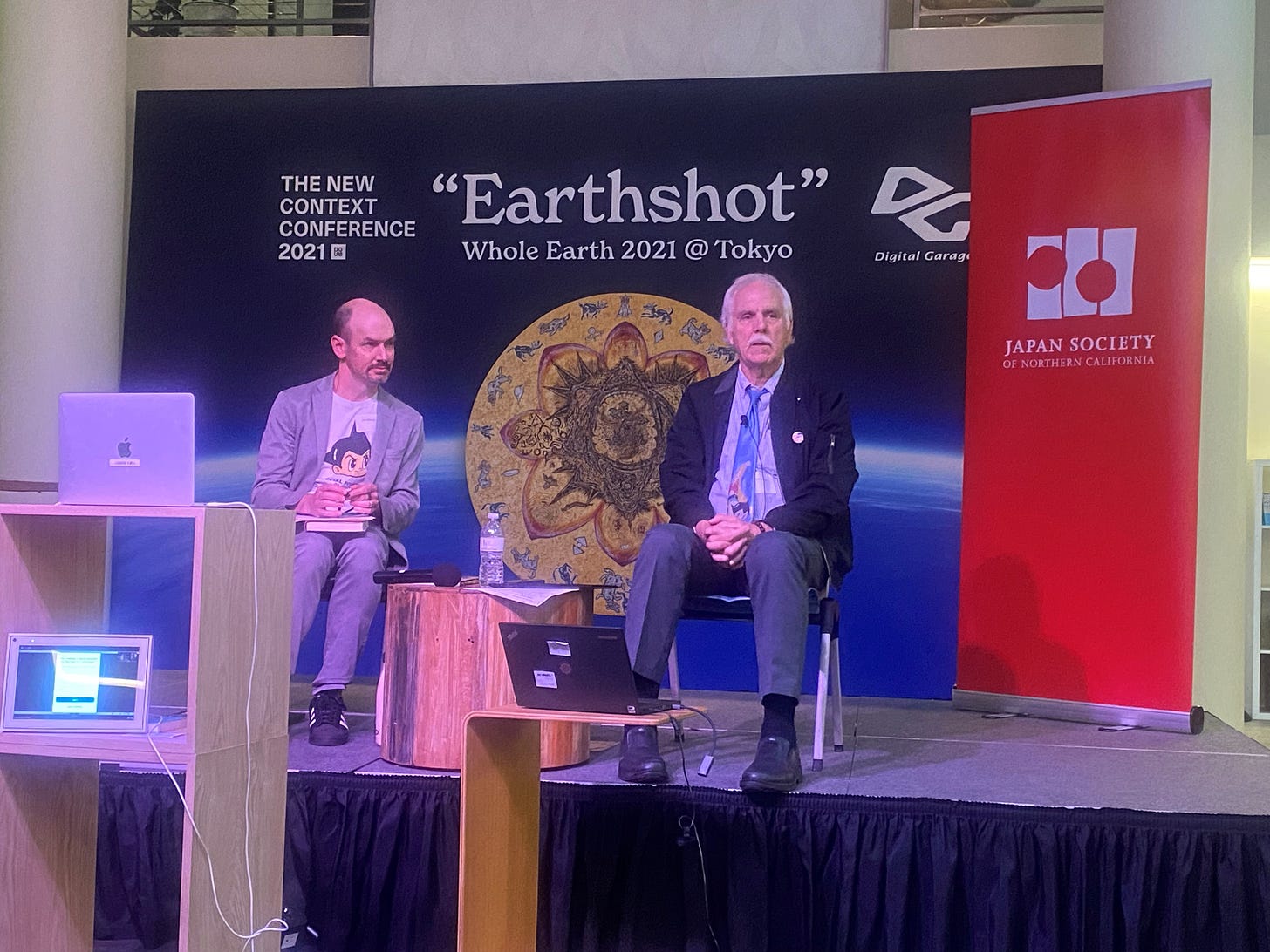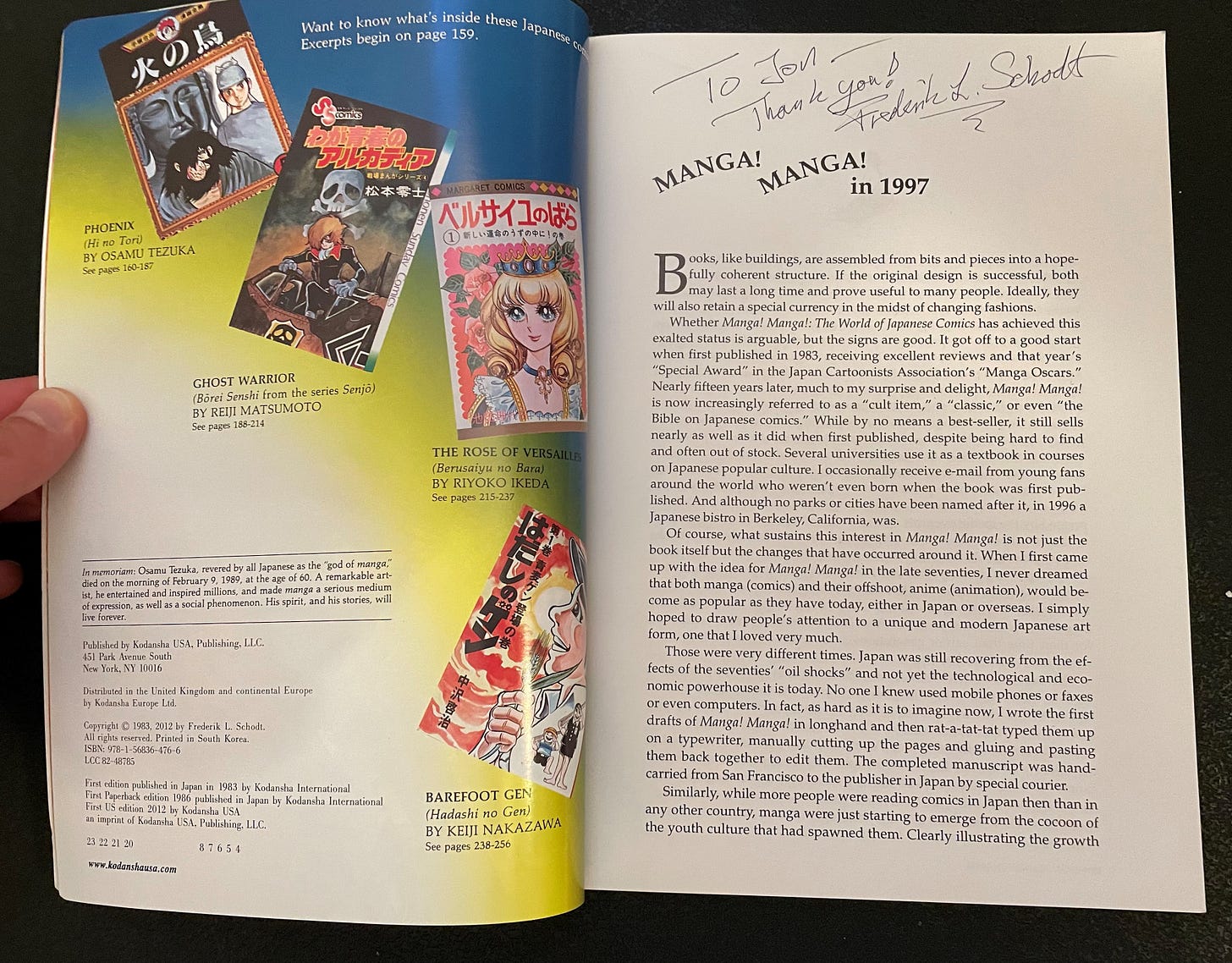This week I had the great pleasure of moderating a hybrid in-person/online event organized by the Japan Society of Northern California on Manga Mania, hosted by the good folks at DG717. The event featured Fred Schodt, author of the seminal Manga! Manga! The World of Japanese Comics, several other works and translator of Astro Boy and Ghost in the Shell, among others; and the hers and his team of Hiroko Yoda and Matt Alt of AltJapan. Matt is also author of Pure Invention, an ode to the global influence of Japan’s pop culture. Photo courtesy of JSNC.
This brought together a lot of threads for me: I assigned excerpts of Pure Invention to a class of Berkeley Haas MBAs for a Business in Japan class this spring, and also started my career working in translation and kept a foot in it for a while (nerdy highlight: translating, in the mid-1990s, back into English, Japanese-language versions of Todd McFarlane’s Spawn IP produced by a partner publisher in Japan. )
Fred graciously signed my copy of Manga Manga, as shown below. (I’ll have to get Matt to sign Pure Invention when we meet in person.)
Two points were made that particularly provoked thought - (1) that a book like Manga Manga wouldn’t be possible today due to increased royalty demands from publishers; and (2) advances in machine translation made it hard to recommend a career in the field. As someone who has experienced DeepL’s improvements (and remembers the crude state of machine translation in the mid-1990s), I can certainly attest to that. What I might have done myself (or, several years ago, lobbed to Gengo or - gasp - a professional) I might now share with DeepL, and I can edit the resulting Japanese around the edges to my satisfaction. (As context: writing in Japanese takes significantly longer than writing in English does, so there’s a time/return tradeoff.)
But, what about the tastemaker function, i.e., the radar that says a certain kind of IP will be a hit, or is under-exposed and should be more exposed? There’s translation, then there’s the radar function that helps sift out what to translate, and for whom, and how to market it. Translation is one function in a broader set of functions, something Hiroko and Matt highlighted in their remarks.
Two other event-driven thoughts:
I write this on July 1, and today is the 25th anniversary of Hong Kong handover, as has been commemorated in various media. I watched it on TV from my apartment in Tokyo. Where were you that day?
On July 14, I’ll host a fireside chat with Cal Henderson, co-founder and CTO of Slack, on a wee topic - the Future of Work! as part of the annual Japan-US Innovation Awards co-produced by the Japan Society of Northern California and Stanford US-Asia Technology Management Center. It’s back-to-the-future - after two years of remote-only events we are going back in-person, and only in-person. Hope to see you.





